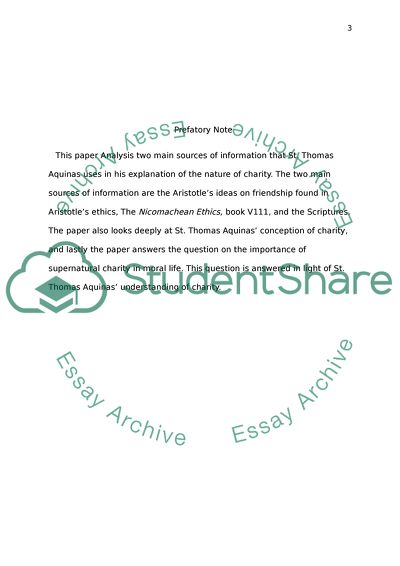Cite this document
(Aquinas on the Virtue of Charity Report Example | Topics and Well Written Essays - 2250 words, n.d.)
Aquinas on the Virtue of Charity Report Example | Topics and Well Written Essays - 2250 words. https://studentshare.org/religion-and-theology/1817572-aquinas-on-the-virtue-of-charity
Aquinas on the Virtue of Charity Report Example | Topics and Well Written Essays - 2250 words. https://studentshare.org/religion-and-theology/1817572-aquinas-on-the-virtue-of-charity
(Aquinas on the Virtue of Charity Report Example | Topics and Well Written Essays - 2250 Words)
Aquinas on the Virtue of Charity Report Example | Topics and Well Written Essays - 2250 Words. https://studentshare.org/religion-and-theology/1817572-aquinas-on-the-virtue-of-charity.
Aquinas on the Virtue of Charity Report Example | Topics and Well Written Essays - 2250 Words. https://studentshare.org/religion-and-theology/1817572-aquinas-on-the-virtue-of-charity.
“Aquinas on the Virtue of Charity Report Example | Topics and Well Written Essays - 2250 Words”. https://studentshare.org/religion-and-theology/1817572-aquinas-on-the-virtue-of-charity.


